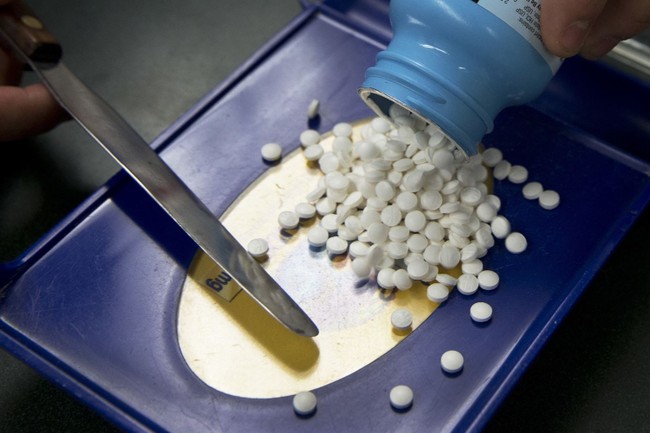Sen. Dianne Feinstein (D-Calif.) has returned to Washington and is back on the job, presumably hoping to power through for another year and a half to the end of her sixth term in the U.S. Senate.
Everybody’s pleased to hear it. She was wheeled into the Capitol last week looking worse for wear at 89 years old but vowing to “resume my duties,” if on a somewhat lighter than usual schedule.
Over the weekend, her would-be successors weighed in. Reps. Barbara Lee (D-Oakland) and Katie Porter (D-Irvine), who are running in the 2024 election to replace her when she steps down, both said they were glad she was feeling better after her three-month bout with shingles, and they wished her well.
Opinion Columnist
Nicholas Goldberg
Nicholas Goldberg served 11 years as editor of the editorial page and is a former editor of the Op-Ed page and Sunday Opinion section.
Rep. Adam B. Schiff (D-Burbank), the other leading candidate, expressed hope for “a speedy recovery” so she could get back to business.
But what were they really thinking? I hate to be cynical — and I don’t claim to have mind-reading skills — but frankly I have a hard time taking what they say about Feinstein at face value.
Sure, they’re probably glad she’s recuperating. But what I suspect they really care about even more than whether she’s on the mend is how her choices about staying on or resigning will affect their upcoming race.
Here’s the complicated reality hiding behind the feel-good press releases. If Feinstein resigns before the election — and that still strikes me as a very real possibility despite her return to Capitol Hill — Gov. Gavin Newsom has the authority to appoint someone to fill her seat. And Newsom made a fateful promise on MSNBC back in 2021 not long after appointing a Latino man to the last open seat: He promised that if he had a chance to appoint again, he’d name a Black woman. There are currently no Black women serving in the Senate.
Right now, the leading candidates in the race to succeed Feinstein are Porter, Schiff and Lee — two white candidates and a Black woman, respectively.
Will Feinstein serve out her full term — or will Newsom get to appoint? If so, will he appoint a Black woman as promised? If he does, will it be Lee, giving her the enormous advantage of incumbency? Or will it be a “caretaker,” who presumably would promise not to run for the office and to give up the seat after the election.
Lee has a strong incentive to hope for an early resignation by Feinstein, and to hope that Newsom will appoint her to the job. That, I suspect, is why Rep. Ro Khanna (D-Fremont), a co-chair of Lee’s election campaign, was so quick to call for Feinstein to resign several weeks ago, saying, “It is obvious she can no longer fulfill her duties.”
Schiff and Porter, for their part, have good reason to want Feinstein to soldier on and serve out her term. That’s probably why Schiff has publicly pointed to problems with naming a replacement. If Feinstein stays, he noted, she can break the logjam on judicial appointments in the Senate Judiciary Committee, but if she steps aside and Newsom fills the vacancy, Republicans would probably block anyone from replacing her on the committee.
Newsom, by most accounts, is not eager for the opportunity to appoint a replacement. “I hope I’ll never have to make that decision,” Newsom said in April when asked if he still intended to appoint a Black woman if Feinstein retired.
And on that I’m inclined to believe him.
If she steps down and he doesn’t appoint a Black woman, it would quite understandably be seen as a betrayal of African American voters. But if he appoints Lee, he angers Schiff and Porter and their strong supporters (such as Nancy Pelosi, with whom he’s close).
If he appoints an African American caretaker — which is probably his best and safest bet — he will anger Lee and no doubt other African American leaders who will feel it betrays the spirit of his promise. They’re looking for a true seat at the table, not a temporary caretaker role.
So while the glad tidings directed at Feinstein from California politicians aren’t lies, their press releases should be read with a skeptical eye and a few dozen grains of salt.
Meanwhile, all this is separate from the question of whether Feinstein should resign for the good of the state and its residents. There’s still pressure on her to step down, especially from progressives who have been unhappy with her moderate Democratic politics for years.
But even that is complicated.
If Feinstein is, as newspaper reports have suggested, showing significant “befuddlement,” forgetting colleagues’ names and “rapidly deteriorating,” it’s hard to argue that she should stick around. Not only would that be unfair to voters, but for Feinstein herself it could be difficult to survive a year and a half in the public eye without an embarrassing mistake that tarnishes her legacy.
It’s also sad but true that much of a senator’s job can be done by staff members, and that thanks to her 30 years of seniority in the Senate, Feinstein wields power and authority that a replacement senator would not. She sits not just on the Judiciary Committee but on the powerful Appropriations Committee as well. Californians would lose influence immediately were she to step down.
And all things being equal, it’s better for voters to select their representatives than for governors to pick for them.
Feinstein has been adamant that she will serve out her term. If she can do so effectively, great. May her health continue to improve.
I hope that whenever she departs the Senate, it will be with her dignity intact and her legacy secure.


















.jpg)


Discussion about this post